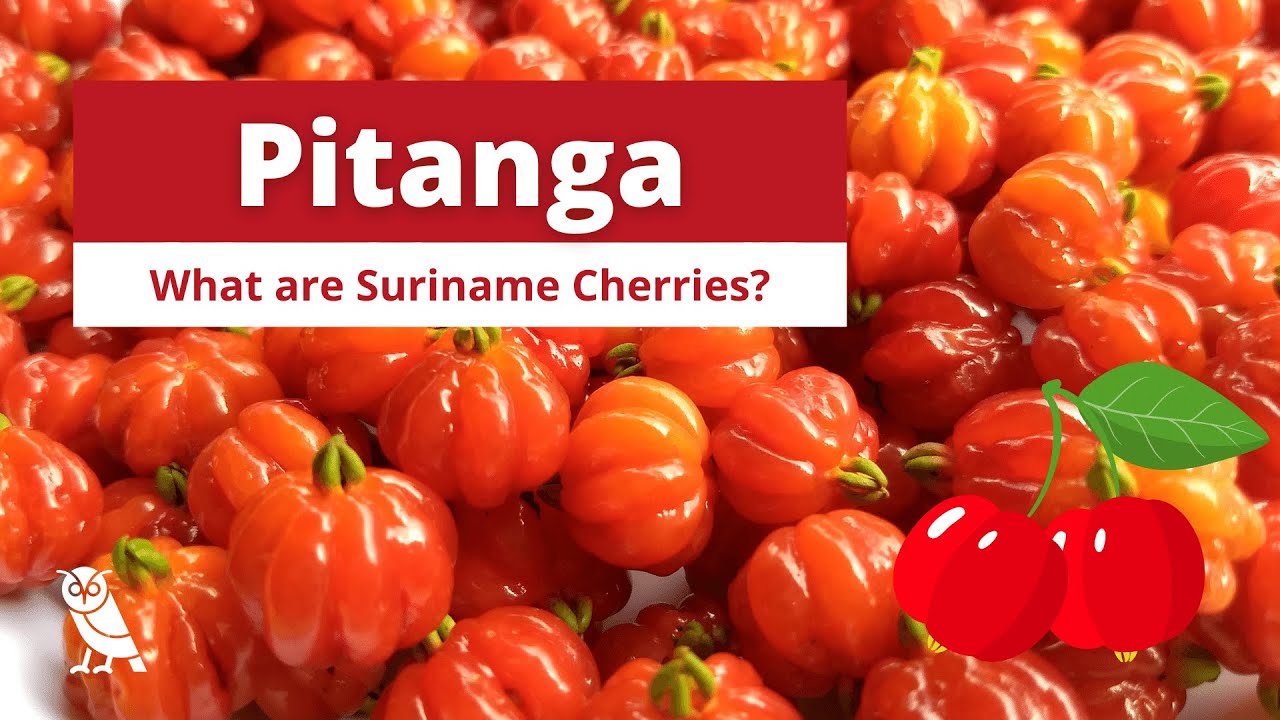Have you ever wondered what kinds of exotic fruits you can find in Suriname? Well, get ready to have your taste buds tantalized because Suriname is a treasure trove of delicious and unique fruits! In this article, we’ll explore the diverse range of fruits that are native to Suriname, giving you a glimpse into the vibrant flavors that await you in this South American paradise.
Suriname boasts an incredible array of exotic fruits, each with its own distinct taste and texture. From the mouthwatering flavors of the sapodilla fruit to the tart and refreshing soursop, you’ll find something to satisfy every craving. If you’re a fan of tropical fruits, you’ll be in heaven here. Imagine biting into a juicy, sweet mango or tasting the creamy richness of a ripe avocado straight from the tree. Suriname also offers lesser-known treasures like the pommerak, with its unique apple-like flavor, and the maripa, a small orange fruit that packs a punch of tropical sweetness. Whether you’re a foodie looking to add some excitement to your recipes or simply enjoy trying new things, exploring the exotic fruits of Suriname is an adventure you won’t want to miss.
So, get ready to embark on a culinary journey through Suriname’s tropical paradise. In the upcoming article, we’ll delve deeper into the flavors, uses, and nutritional benefits of these exotic fruits, giving you all the information you need to become a true Surinamese fruit connoisseur. From learning about the different ways to enjoy these fruits, such as in refreshing juices or as toppings for desserts, to discovering the hidden health benefits they offer, you’ll find plenty of reasons to be excited about Suriname’s exotic fruits. So, stay tuned and get ready to discover a whole new world of flavors!
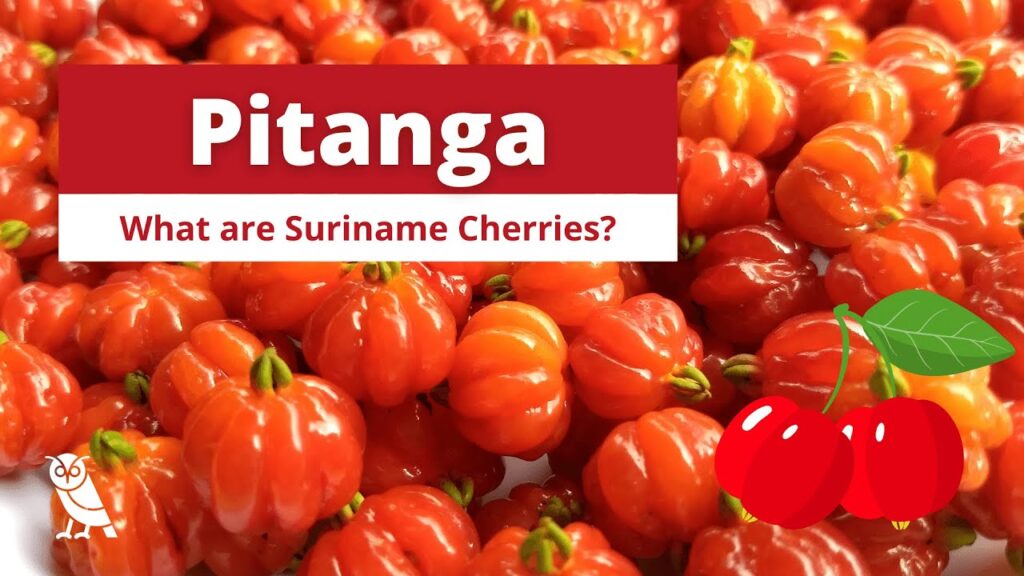
Introduction
Exploring the Exotic Fruits of Suriname
Welcome to the lush tropical paradise of Suriname, where a delightful array of exotic fruits awaits you. Suriname, located on the northeastern coast of South America, is known for its stunning biodiversity and rich cultural heritage. In this article, we will take you on a journey to discover the unique flavors, health benefits, and culinary uses of Suriname’s exotic fruits. So, grab your taste buds and join us as we delve into the vibrant world of Surinamese fruits.
1. Suriname: A Tropical Paradise for Foodies
The Beauty of Suriname’s Biodiversity
Suriname is a hidden gem when it comes to biodiversity. With its pristine rainforests, expansive savannahs, and winding rivers, this tropical haven is home to a plethora of plant and animal species. The abundance of rainfall and fertile soil contribute to the growth of an incredible variety of fruits, making Suriname a paradise for food enthusiasts.
Suriname’s Rich Cultural Heritage
Suriname’s diverse cultural heritage is deeply intertwined with its culinary traditions. The country boasts a multicultural population consisting of indigenous peoples, Creoles, Maroons, Javanese, and more. Each group has their own unique flavors and cooking techniques, resulting in a fascinating fusion of cuisines. Surinamese fruits play a vital role in traditional dishes, adding depth and vibrancy to the culinary tapestry of the country.
The Culinary Delights of Suriname
Surinamese cuisine is a harmonious blend of flavors and influences from around the world. The use of exotic fruits is a key component in many traditional dishes, adding a burst of freshness and natural sweetness. From mouthwatering fruit-based drinks and desserts to innovative savory creations, Suriname’s culinary scene is a true delight for foodies.
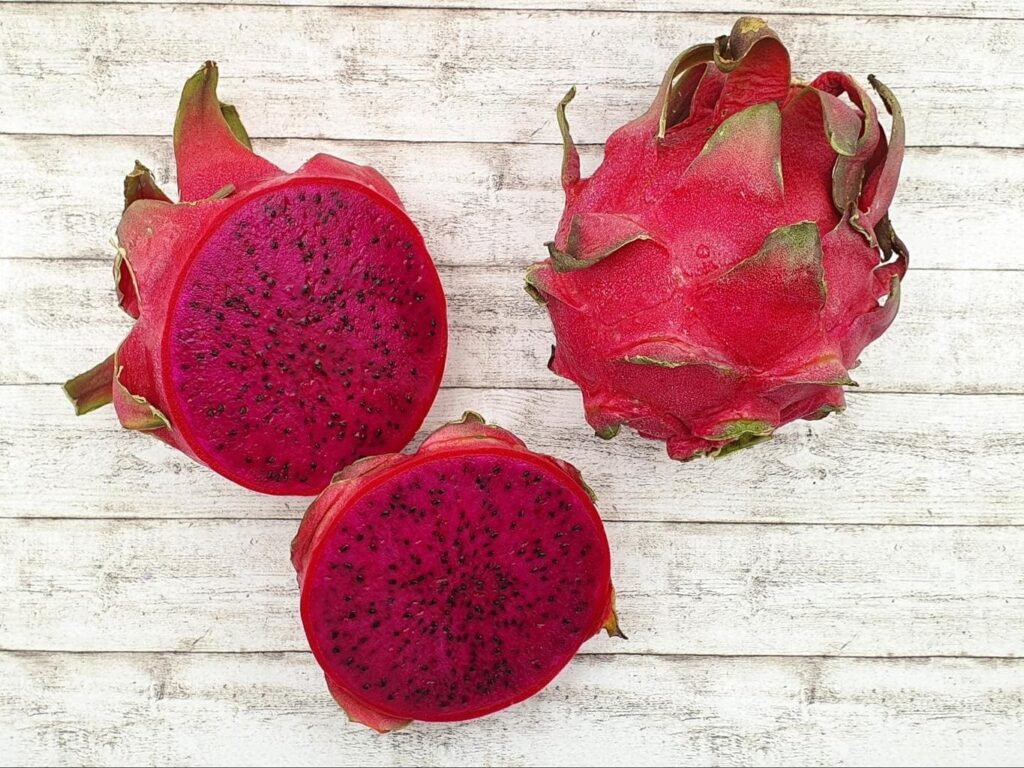
2. Discovering Suriname’s Exotic Fruits
Diverse Varieties of Surinamese Fruits
Suriname is home to a wide range of exotic fruits, each with its own distinct characteristics. Whether you prefer tropical flavors like mangoes and pineapples or are eager to explore lesser-known fruits like wani and kasripo, Suriname offers a cornucopia of options. The country’s tropical climate and fertile soil create the perfect conditions for these fruits to thrive.
Unique Flavors and Aromas
Surinamese fruits are renowned for their unique flavors and aromas. The wani, for example, is a small red fruit that bursts with a tangy and slightly sweet taste. Pommerak, on the other hand, is a large green fruit with a tart and refreshing flavor. The goyave, also known as guava, offers a tropical twist with its fragrant aroma and sweet yet tangy taste. Each fruit is a delightful surprise for your taste buds.
Nutritional Value and Health Benefits
In addition to their delectable flavors, Surinamese fruits are packed with nutritional goodness. These fruits are rich sources of vitamins, minerals, and antioxidants, making them a healthy addition to any diet. From boosting your immune system with vitamin C to improving digestion with fiber, Surinamese fruits offer a myriad of health benefits. Including these fruits in your daily routine can help you maintain a balanced and nutritious diet.
3. Popular Exotic Fruits in Suriname
Wani
The wani is a small, round fruit with a vivid red color. Its unique flavor is a delightful combination of tanginess and sweetness. This fruit is commonly enjoyed raw, as a snack, or used to make refreshing juices and cocktails.
Pommerak
The pommerak is a large, green fruit with a tart flavor and a unique shape reminiscent of a pear. Its vibrant green flesh is perfect for making tangy sauces, jams, and desserts. While it can be eaten raw, many locals enjoy it pickled or used in savory dishes.
Goyave
Also known as guava, the goyave is a tropical fruit with a fragrant aroma and a sweet yet tangy taste. It can be eaten on its own, added to fruit salads, or used to make jams and jellies. Goyave is also a popular ingredient in refreshing beverages and cocktails.
Ananas
Ananas, or pineapple, is a favorite tropical fruit worldwide. Suriname’s pineapple is known for its juicy sweetness and vibrant yellow flesh. It is often enjoyed fresh, used in fruit salads, or incorporated into sweet and savory dishes.
Kawuwatra
Kawuwatra, also known as star apple, is a unique fruit with a purple or green exterior and a milky white interior. Its sweet and creamy flesh is often eaten fresh, but it can also be used in desserts and fruit preserves.
Pitanga
Pitanga, also called Surinamese cherry, is a small, bright red fruit with a tart and tangy flavor. It is commonly used to make juices, jams, and liqueurs. Pitanga is also a popular ingredient in desserts and baked goods.
Bakove
Bakove, also known as banana, is a staple fruit in Surinamese cuisine. With its sweet and creamy flesh, bakove is enjoyed ripe or cooked in various dishes. It is a versatile fruit that can be used in both sweet and savory recipes.
Kasripo
Kasripo, or cashew fruit, is native to South America and is cherished for its bright yellow color and tropical flavors. While the cashew nut is the most well-known part of the fruit, the fleshy cashew apple is also consumed. Its juicy and slightly acidic taste makes it a popular ingredient in tropical fruit salads and beverages.
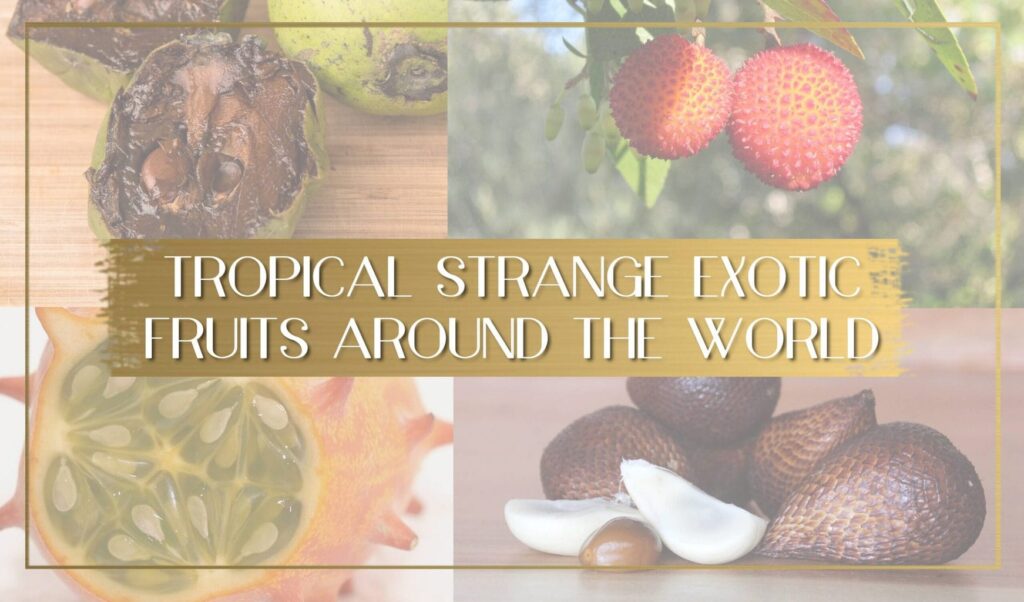
4. Surinamese Fruits in Traditional Cuisine
Fruit-Based Drinks and Juices
Surinamese cuisine showcases a wide range of fruit-based drinks and juices that highlight the natural flavors of the fruits. Exotic fruits like mangoes, pineapples, and passion fruits are commonly used to create refreshing and invigorating drinks. Whether you’re sipping on a freshly squeezed orange juice or enjoying a tropical fruit punch, these beverages are a delightful way to quench your thirst and cool down in Suriname’s tropical climate.
Fruit Salads and Desserts
Surinamese fruit salads are a true celebration of the country’s diverse fruit offerings. These colorful and vibrant salads combine a medley of fruits, such as papaya, watermelon, melons, and citrus fruits. Topped with a sprinkle of lime juice or a drizzle of honey, these salads are a refreshing and healthy treat. Suriname’s desserts also feature an abundance of fruits, with popular options like fruit tarts, pies, and sorbets that showcase the natural sweetness and flavors of the fruits.
Incorporating Fruits in Savory Dishes
In Surinamese cuisine, fruits are not limited to sweet treats but are also used in savory dishes to create a unique balance of flavors. Fruits like pineapple, mango, and guava are often used as key ingredients in marinades, sauces, and chutneys. These additions add a tangy and sweet twist to dishes such as grilled meats, seafood, and stews, elevating the overall taste and complexity of the meal.
5. Exotic Fruit Markets and Farms in Suriname
Exploring Local Fruit Markets
To experience the true essence of Suriname’s exotic fruits, a visit to the local fruit markets is a must. These bustling hubs are a feast for the senses, offering a wide array of colorful fruits and a chance to interact with local vendors. From traditional markets like Paramaribo Central Market to smaller rural markets, you will be amazed by the variety and abundance of fruits available. Exploring the markets provides a glimpse into the daily lives of the locals and an opportunity to taste-test the freshest and juiciest fruits.
Visiting Fruit Farms in Suriname
For a deeper understanding of Suriname’s fruit cultivation and production, a visit to the fruit farms is highly recommended. Suriname boasts numerous fruit farms, where you can witness the labor-intensive process of growing and harvesting these exotic fruits. Guided tours will educate you about the different fruit varieties, farming techniques, and the challenges faced by farmers in maintaining sustainable practices. It’s a remarkable experience to witness firsthand how these fruits make their way from the farms to your plate.
Farm-to-Table Experiences
Suriname offers unique farm-to-table experiences for those seeking a hands-on culinary adventure. Many farms and eco-lodges in the country provide opportunities for visitors to participate in fruit harvesting activities. Imagine plucking ripe mangoes straight from the trees or handpicking juicy star apples. These immersive experiences not only connect you with nature but also allow you to appreciate the hard work that goes into growing and cultivating these exquisite fruits. You can then savor the fruits of your labor by enjoying a delicious meal prepared using freshly picked fruits.
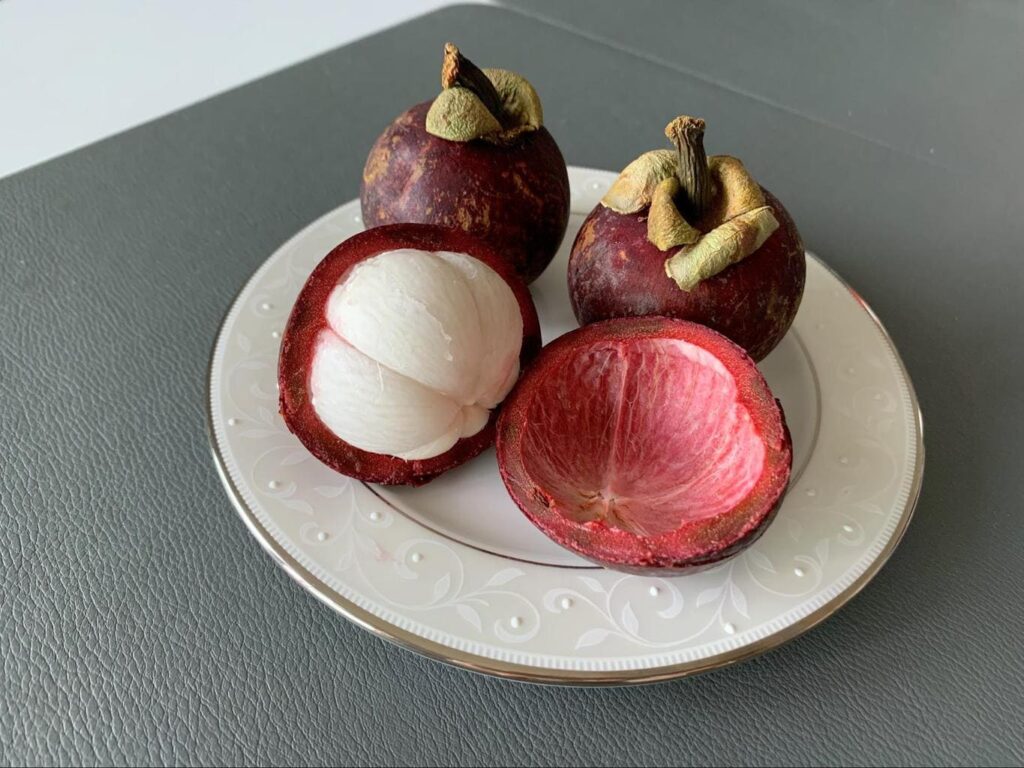
6. Surinamese Fruit Festivals and Events
Celebrating Fruit Harvests
Suriname’s fruit harvests are celebrated with great enthusiasm and joy, as locals gather to honor the bounties of nature. The fruit harvest festivals are vibrant affairs, filled with music, dance, and endless feasting. These celebrations provide an opportunity to taste a wide variety of fruits at their peak freshness and to indulge in traditional dishes made with these fruits. The festivals are also a platform for farmers to showcase and sell their produce, fostering a sense of community and pride in their agricultural heritage.
Fruit Tasting Events
If you’re a true fruit enthusiast, Suriname’s fruit tasting events are not to be missed. These events feature a curated selection of Surinamese fruits, allowing participants to savor and learn about the different flavors, textures, and aromas of the fruits. Local experts guide attendees through the tasting process, sharing insights about the fruits’ origins, nutritional benefits, and culinary uses. Fruit tasting events are a fun and educational way to deepen your appreciation for Suriname’s exotic fruits.
Fruit-Centric Festivals
Suriname hosts several fruit-centric festivals throughout the year, where local communities come together to showcase their rich fruit culture. These festivals are a testament to Surinamese pride and the diverse flavors of the country. From pineapple festivals to mango fairs, these events offer a glimpse into the unique fruit traditions that have been passed down through generations. Immerse yourself in the festivities, try your hand at fruit-themed games, and sample an array of mouthwatering fruit delicacies.
7. Sustainable Farming Practices in Suriname
Preserving Biodiversity
Suriname understands the importance of preserving its rich biodiversity for future generations. The country has implemented sustainable farming practices to minimize the impact on the environment and promote the conservation of natural resources. By cultivating fruits with organic methods and avoiding the use of harmful chemicals, farmers ensure that Suriname’s diverse ecosystem remains intact. This commitment to sustainability not only protects the delicate balance of the rainforests but also ensures the long-term availability of these exotic fruits.
Organic Farming Techniques
Many fruit farmers in Suriname have embraced organic farming techniques to promote the health and well-being of the land and its produce. Organic farming methods prioritize the use of natural fertilizers, crop rotation, and biological pest control to maintain a harmonious relationship with nature. These practices result in fruits that are free from harmful residues and have a heightened flavor profile. By supporting organic farming in Suriname, you contribute to the preservation of the environment and the promotion of sustainable agriculture.
Community-Led Initiatives
Communities in Suriname actively engage in initiatives that promote sustainable fruit farming practices and protect their cultural heritage. These grassroots efforts aim to educate farmers and consumers alike about the importance of conserving Suriname’s natural resources. Community-led initiatives provide support, training, and resources to farmers, ensuring that they have the knowledge and tools to cultivate fruits sustainably. By empowering local communities, Suriname is forging a path towards a more sustainable and environmentally conscious future.
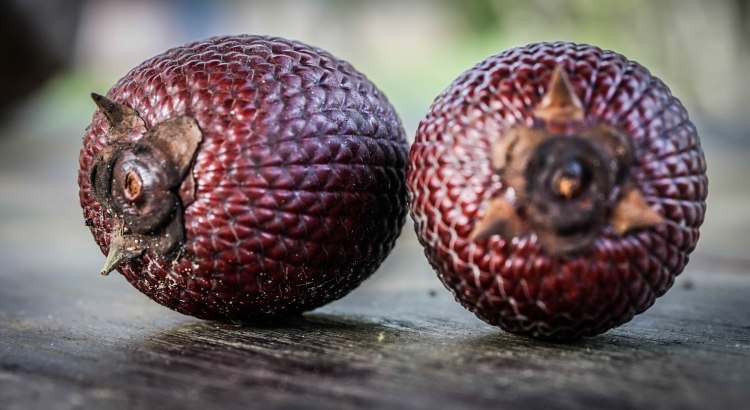
8. Exotic Fruits and Traditional Medicine in Suriname
Medicinal Properties of Surinamese Fruits
Surinamese fruits have long been valued for their medicinal properties in traditional medicine practices. Many fruits, such as the goyave, are believed to have immune-boosting properties, while others like the pitanga are praised for their antioxidant content. These fruits are often used in herbal remedies, teas, and tonics to address common ailments and promote overall well-being. Suriname’s indigenous communities have a deep knowledge of the healing properties of these fruits and continue to preserve this valuable traditional knowledge.
Traditional Healing Practices
In Suriname, traditional healing practices are deeply connected to nature and the use of medicinal plants and fruits. The knowledge of traditional healers, also known as “bakra man,” is passed down through generations and plays an important role in the healthcare system of the country. Fruits are used in various forms, such as extracts, poultices, or infusions, to address specific health conditions. Whether it’s using the bark of the wani tree to treat stomach ailments or consuming crushed cashew leaves for diabetes management, Suriname’s traditional healing practices offer a fascinating insight into the therapeutic potential of fruits.
Exploring Indigenous Knowledge
Suriname’s indigenous communities possess a wealth of knowledge about the country’s flora and fauna. Their traditional knowledge and practices regarding the cultivation and use of fruits are invaluable. By engaging with these communities and learning from their indigenous knowledge, we gain a deeper appreciation for Suriname’s exotic fruits and their significance in both traditional medicine and cultural practices. It is essential to respect and preserve this indigenous knowledge to ensure its continuous transmission to future generations.
9. Culinary Tourism in Suriname
Fruit-Focused Food Tours
Culinary tourism in Suriname offers a unique opportunity to explore the country’s vibrant food scene, with a particular focus on its exotic fruits. Fruit-focused food tours take you on a gastronomic adventure, offering a taste of Suriname’s diverse fruit offerings. From sampling street food stalls serving mouthwatering fruit snacks to dining in upscale restaurants offering innovative fruit-infused dishes, these tours provide a comprehensive overview of Suriname’s fruit-centric cuisine. Engage your senses and immerse yourself in the rich flavors and aromas of Suriname’s fruits through these culinary journeys.
Cooking Classes and Workshops
For those who want to get hands-on with Surinamese fruits, cooking classes and workshops are a wonderful way to learn traditional recipes and techniques. Skilled chefs and local cooks share their expertise, teaching participants how to incorporate fruits into a variety of dishes. From mastering the art of making fruit-based sauces to creating delectable desserts, these classes offer a one-of-a-kind culinary experience. By participating in cooking classes, you not only broaden your culinary skills but also gain a deeper understanding of the cultural significance of Suriname’s fruits in everyday life.
Culinary Experiences in Suriname
Suriname’s culinary experiences go beyond just tasting the fruits; they offer a holistic exploration of the country’s cultural and culinary traditions. From dining with local families in their homes to food-focused tours of indigenous villages, these experiences allow you to connect with the locals and gain insight into Surinamese life. Whether you’re learning the art of making traditional fruit-based sweets or exploring the vibrant street food scene, Suriname’s culinary experiences provide a true feast for all your senses.
10. Suriname’s Role in Global Fruit Trade
Exporting Surinamese Fruits
Surinamese fruits have gained recognition beyond the country’s borders, with a growing demand for their exotic flavors worldwide. Suriname exports a variety of fruits, including bananas, pineapples, and mangoes, to regional and international markets. The export industry plays a vital role in supporting local fruit farmers and stimulating the country’s economy. Suriname’s fruits are known for their exceptional quality and unique characteristics, making them sought-after commodities in global markets.
International Demand for Exotic Surinamese Fruits
The international demand for exotic fruits from Suriname is steadily increasing, driven by consumers’ growing interest in alternative and healthy food choices. The vibrant flavors and nutritional benefits of Surinamese fruits make them popular ingredients in juices, smoothies, and gourmet cuisine around the world. Suriname’s fruits offer a unique and novel taste experience for consumers eager to explore new culinary horizons.
Economic Impact of Fruit Trade
The fruit trade in Suriname provides significant economic opportunities for the country. It supports local farmers and small-scale producers, contributing to rural development and poverty alleviation. The revenue generated from the export of fruits stimulates the national economy, creating employment opportunities and enhancing economic growth. Suriname’s fruit trade showcases the country’s potential as a global player in the agricultural sector, while also highlighting the importance of sustainable farming practices to ensure the long-term viability of this lucrative industry.
Conclusion
The Exquisite Delights of Suriname’s Exotic Fruits
Suriname’s exotic fruits offer a tantalizing journey for food enthusiasts and nature lovers alike. From the vibrant markets and fruit farms to the festive celebrations and culinary experiences, you will be immersed in a world of flavors, aromas, and cultural richness. Surinamese fruits not only delight the taste buds but also provide valuable nutrition and health benefits. Their sustainable cultivation practices ensure the preservation of the country’s biodiversity and the well-being of its communities.
Embark on an adventure to Suriname and discover the enchanting world of exotic fruits. Immerse yourself in the vibrant culture, indulge in delectable fruit-based dishes, and savor the unique flavors that have captivated foodies worldwide. Suriname’s exotic fruits are waiting to be explored, so pack your bags and get ready for a tropical paradise that will leave you craving for more.
